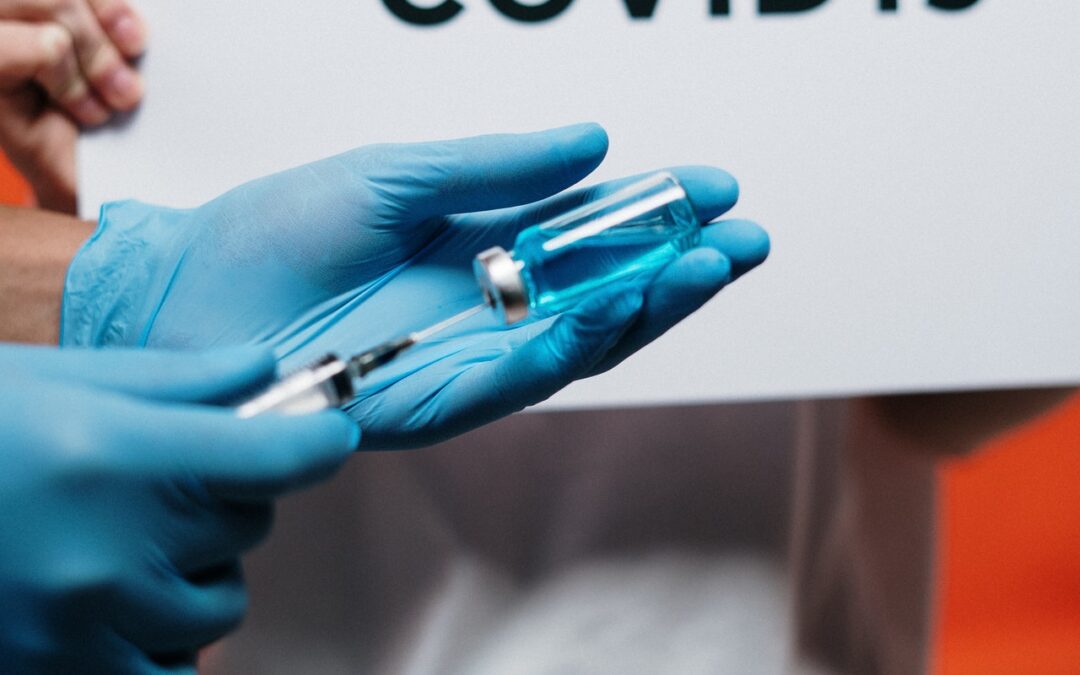The United Kingdom approach to vaccinated children against COVID-19 has been very conservative compared to across the pond here in the United States. It’s a subject I have spoken about before, and for the last few months we have been hearing consistent statements from the UK JCVI (Joint Committee on Vaccines and Immunization) that they were not recommending the vaccines for children, unless there were any unique pre-existing conditions or risk factors.
Last month they tentatively started vaccinating 16 to 18-year olds, but with only one dose of the vaccine. This is in stark contrast to the United States, which has an all or nothing approach to COVID vaccines, with no room for nuances (I actually agree with the UK approach, because those of us practicing medicine know that there’s rarely a one-size-fits-all approach). A lot of medicine is very grey indeed, and healthcare authorities should always acknowledge this.
Last week, the JCVI put out another statement saying:
The assessment by the Joint Committee on Vaccination and Immunisation (JCVI) is that the health benefits from vaccination are marginally greater than the potential known harms. However, the margin of benefit is considered too small to support universal vaccination of healthy 12 to 15 year olds at this time.
It is not within the JCVI’s remit to consider the wider societal impacts of vaccination, including educational benefits. The government may wish to seek further views on the wider societal and educational impacts from the Chief Medical Officers of the UK 4 nations.
For the vast majority of children, SARS-CoV-2 infection is asymptomatic or mildly symptomatic and will resolve without treatment. Of the very few children aged 12 to 15 years who require hospitalisation, the majority have underlying health conditions. The committee has recommended the expansion of the list of conditions to which the offer applies for at-risk 12 to 15 year olds.
There is evidence of an association between mRNA COVID-19 vaccines and myocarditis. This is an extremely rare adverse event. The medium- to long-term effects are unknown and long-term follow-up is being conducted.
Given the very low risk of serious COVID-19 disease in otherwise healthy 12 to 15 year olds, considerations on the potential harms and benefits of vaccination are very finely balanced and a precautionary approach was agreed.
Chair of COVID-19 Immunisation for the JCVI, said:
Children aged 12 to 15 years old with underlying health conditions that put them at higher risk of severe COVID-19 should be offered COVID-19 vaccination. The range of underlying health conditions that apply has recently been expanded.
For otherwise healthy 12 to 15 year old children, their risk of severe COVID-19 disease is small and therefore the potential for benefit from COVID-19 vaccination is also small. The JCVI’s view is that overall, the health benefits from COVID-19 vaccination to healthy children aged 12 to 15 years are marginally greater than the potential harms.
Taking a precautionary approach, this margin of benefit is considered too small to support universal COVID-19 vaccination for this age group at this time. The committee will continue to review safety data as they emerge.
When deciding on childhood immunisations, the JCVI has consistently maintained that the main focus should be the benefits to children themselves, balanced against any potential harms to them from vaccination.
As longer-term data on potential adverse reactions accumulates, greater certainty may allow for a reconsideration of the benefits and harms. This data may not be available for several months.
Essentially, they are not recommending the vaccines yet based on the benefit versus risk balance being unclear for children, who are after all, a very low risk group.
Over the last few days it emerged that the UK government may overrule this decision and start vaccinating younger teenagers. To be clear, no formal decision has been made yet.
But it presents an interesting dilemma for the government. I don’t envy their position. If they press on ahead, and any children suffer unwanted side-effects, government ministers or even the Prime Minister will be blamed directly, because they have essentially overruled the science and medicine advisory committee. Many of these members have openly said in other statements that they question the utility of COVID vaccines in children.
Prime Minister Boris Johnson, himself said last month: “I would just urge all families thinking about this across the country to listen to the JCVI”.
Overall, as I’ve made clear before, I do applaud the level of debate and intense consideration in the UK. Many major news outlets have openly run stories about how: “Children may be better off gaining immunity from catching COVID than getting a vaccine”. I could not imagine this in the United States.
Let me end with one thought here as the UK government is considering overruling the JCVI. The basic fundamental question is, are we doing this for children, or primarily to protect older adults. If the latter is true, is that ethically shaky ground to be on?
Let’s think here what other animal species do to protect their young. Elephants in the wild for instance, if they sense a threat, will start walking in circles around their young to protect them. In my opinion, children should never be asked to take risks to protect older adults. It should always be the other way round.
If I was in the UK government right now, I would want to see compelling data before I proceed with a mass vaccination program in healthy children. What are the benefits and risks? Will it help with keeping schools open, and where’s the evidence? In the US for instance, we’ve seen that many schools and colleges are still going through the same process, even with vaccinated students, in terms of isolation and restrictions—when their students test positive.
Let me know your thoughts down below, whether you are pro vaccinating teenagers, or against it. Big decision for the UK ahead…
 Suneel Dhand is a physician, writer, and YouTuber. He is Founder at MedStoic Lifestyle Medicine and DocsDox . Follow him on YouTube and Facebook.
Suneel Dhand is a physician, writer, and YouTuber. He is Founder at MedStoic Lifestyle Medicine and DocsDox . Follow him on YouTube and Facebook.

